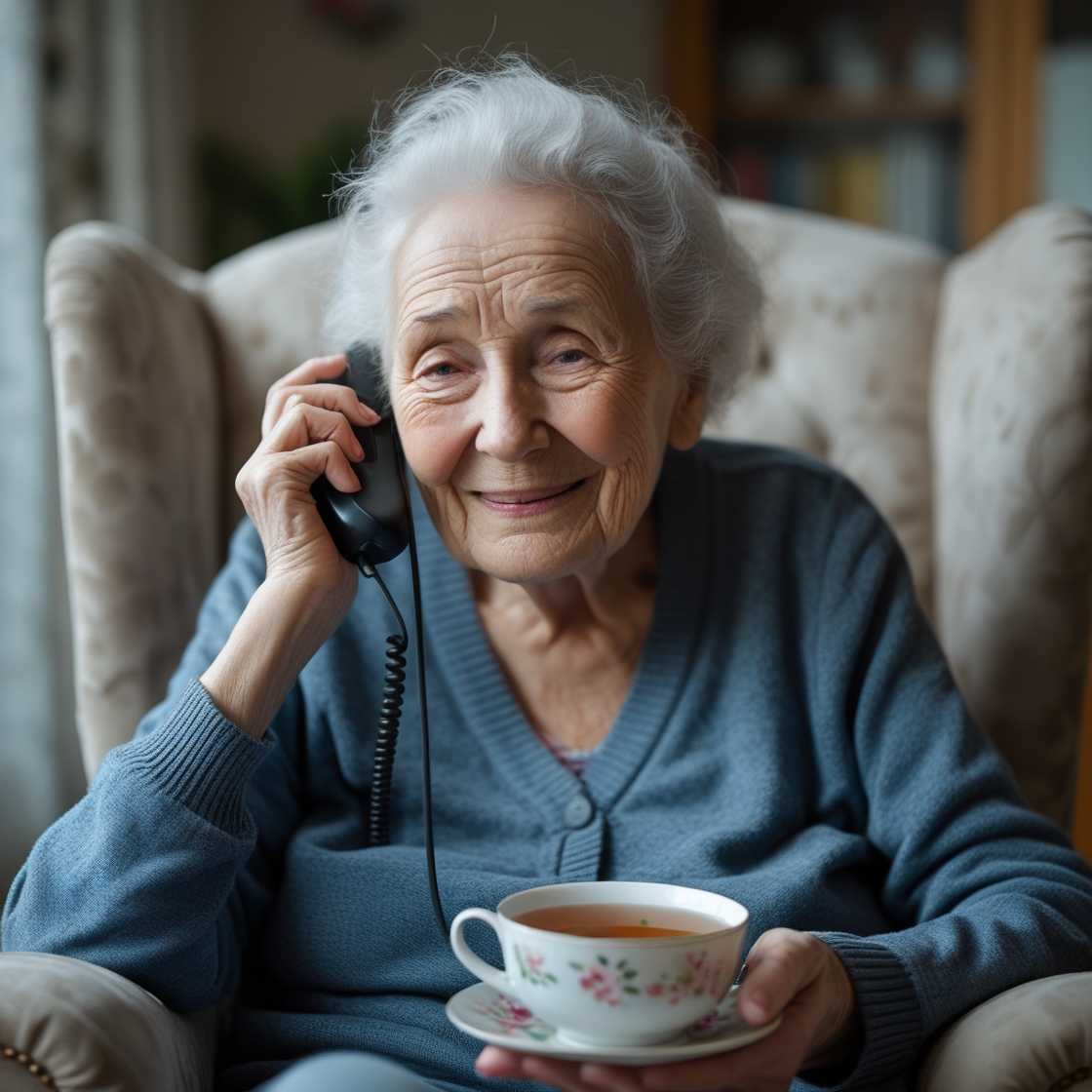It always falls to me to look after someone else’s elderly mother. Out of nowhere, she’ll ring—sometimes saying she’s unwell, other times claiming she can’t sleep. One minute it’s a pounding headache, the next her legs are giving way. Her daughter, Emily, drops everything, races over like the house is on fire, phones an ambulance, and cries that her gran’s on death’s doorstep.
But by the time I get to her cramped little flat in Manchester, there she is—settled in her armchair, sipping tea with a sweet smile:
“Oh, I’m feeling much better now.”
The paramedics arrive, take her blood pressure—it’s perfect, like she’s twenty years younger. They just shake their heads and leave. Emily snaps, “Mum, what are you playing at? You can’t keep causing a scene like this!”
And Antonia—always calm—says, “Well, how else was I meant to get your attention? I just needed help opening a jar.”
Antonia’s in her eighties, and I swear, she’ll be the death of me. Her memory’s patchy, her thoughts scatter like leaves, but no one’s really bothered to find out what’s wrong. She lives alone in a run-down two-bed, ever since her son passed away seventeen years ago. The rest of the family is distant, and frankly, she couldn’t care less about them. The only people she clings to are her daughter Emily and granddaughter Sophie—and she calls on them for everything. Most of it is utter nonsense, the kind that makes your teeth clench.
The truth is, she’s lonely. So she dreams up emergencies to draw people in. She rings Emily at work, despite being told again and again not to. She’ll wake Sophie at 3 a.m. to ask something ridiculous. She even tried calling me once, but I shut that down quick:
“Don’t call me. I’m not your family.”
Back when I was married to her son, she was always meddling, always nitpicking. After we divorced—and not long after he died—I kept my distance. The only reason I’m even remotely involved now is because of Sophie. I never kept her from seeing her gran; that was her choice.
To be fair, after her son died, Antonia really did make an effort. She doted on Sophie, treated her, gave her time. They were close. But Sophie’s thirty-two now, married for five years, working long hours with her husband to pay off a mortgage and save for a baby. They barely have time to breathe—yet Antonia demands more.
A couple of years ago, she still had some boundaries. These days, she’s abandoned all pretense. Now it’s always some dramatic performance—groaning, moaning, crying wolf. Friends tell me, “Don’t give in. Don’t go.” But what if she really is in trouble one day and no one comes? A few years back, she had a mini-stroke—swore it was just a dizzy spell. Turned out it was serious, and she was embarrassed afterward for brushing it off. Doctors told us she shouldn’t be alone anymore. Since then, Sophie’s been at her beck and call.
Every visit now feels like a test of patience. We even tried hiring a carer, but Antonia kicked her out after a week—said she “didn’t do anything right.” Found a perfectly decent care home too. If we sold the flat and topped it off with her pension, she’d be well taken care of.
But no.
“I’m not going. End of.”
She won’t see a doctor. She won’t accept help. She won’t move. She just digs her heels in and yells. And we’re all left circling her orbit, afraid to step back—afraid of what might happen if we do.
